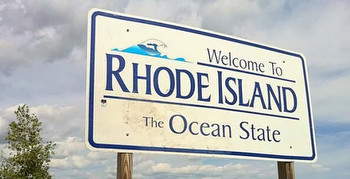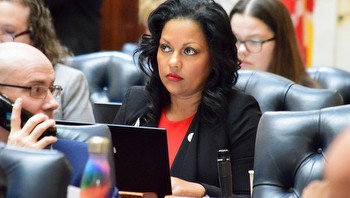Legislation introduced to allow online casino gambling in R.I.
PROVIDENCE — Senate President Dominick J. Ruggerio this week joined in introducing legislation to allow online casino gaming, or “iGaming,” in Rhode Island.
Bally’s Corporation, the Rhode Island-based casino giant, announced a “major legislative initiative” for iGaming in February during the Greater Providence Chamber of Commerce legislative luncheon. Now Ruggerio, a North Providence Democrat, and Representative Gregory J. Costantino, a Lincoln Democrat, have submitted the legislation to advance that proposal.
“This legislation is a first step in the public review process around potential iGaming in Rhode Island,” Ruggerio and House Speaker K. Joseph Shekarchi said in a joint statement. “Our state casinos provide an important source of revenue to fund vital programs and investments that benefit all Rhode Islanders.”
The companies that manage casino operations for the state have made “significant investments to ensure they are well positioned to thrive in the years ahead,” the two leaders said. And, they said, “It is imperative that we continue to explore all avenues to protect and bolster our competitive position, including the potential for iGaming.”
Get Rhode Map
A weekday briefing from veteran Rhode Island reporters, focused on the things that matter most in the Ocean State.
Online casino gaming is now allowed in six states: Connecticut, New Jersey, Delaware, Pennsylvania, West Virginia, and Michigan.
A study commissioned by Bally’s concluded that Rhode Island could generate an estimated $93.3 million of gross gaming revenue in the first year, and an estimated $130.6 million in the fifth year. That could generate $210 million in taxes for the stateover a five-year period, the study concluded.
Bally’s expects “little to no switching of play from in-person at retail casinos to online gaming,” this week’s announcement said. And state government “would retain complete regulatory control of iGaming if it were to be enacted” under the proposed legislation.
“The Senate and House Finance Committees will now begin a rigorous public review process during which all aspects of the proposal will be thoroughly examined, including proper protections,” Ruggerio and Shekarchi said.
When Bally’s announced the proposal in February, Ruggerio said he not only considered it a “great idea” — he said he suggested the concept to Bally’s. “It was my idea. I went to them,” Ruggerio said after the Chamber event. “I was at a gaming conference a few years ago, and someone mentioned iGaming.”
He said he wasn’t familiar with the concept at the time. “I mean, I wouldn’t know iGaming from Adam,” Ruggerio said. But he said he asked Bally’s to take a look at the concept and see what they are doing in other states.
“I was interested because I felt that it was a revenue generator,” Ruggerio said. “It’s going to be convenient for people. They don’t have to go up there. They can stay at home.”
The proposal drew immediate opposition from Joseph S. Larisa Jr., a lawyer who had challenged the state’s online sports betting program. Larisa noted the state Constitution says that “no act expanding the types or locations of gambling” shall take effect until such an expansion is approved in statewide and local referenda.
Larisa argued that for this proposal to be legal, voters would have to approve the expansion in a statewide referendum, and voters in the 37 cities and towns other than Lincoln and Tiverton would have to approve it because it would expand online gaming to every smart phone, tablet, and computer screen in the state.
The legislation calls 50 percent of online slot gaming revenue to be allocated to the state, 35 percent to the state’s “authorized iGaming platform vendor,” and 15 percent to the state’s “authorized iGaming game vendor.”
Online slot gaming revenue would be deposited into the state lottery fund for administrative purposes, with the remaining balance placed in the state general fund.
The legislation would require that iGaming wagers be made within Rhode Island. “Geolocation technology shall be used in connection with iGaming to detect the physical location of a player at the time the player is wagering,” the bill says. “If the geolocation technology detects that the physical location of the patron at the time the player is wagering is in an area outside the State of Rhode Island, or if it cannot detect the physical location of the patron, the system shall not accept that patron’s wagers.”
But the legislation also allows “interactive gaming reciprocal agreements” with other states that have interactive gaming “to allow an interactive gaming operator to accept wagers from persons not physically present in Rhode Island,”
If enacted into law, the act would take effect on Jan. 1, 2024.



































